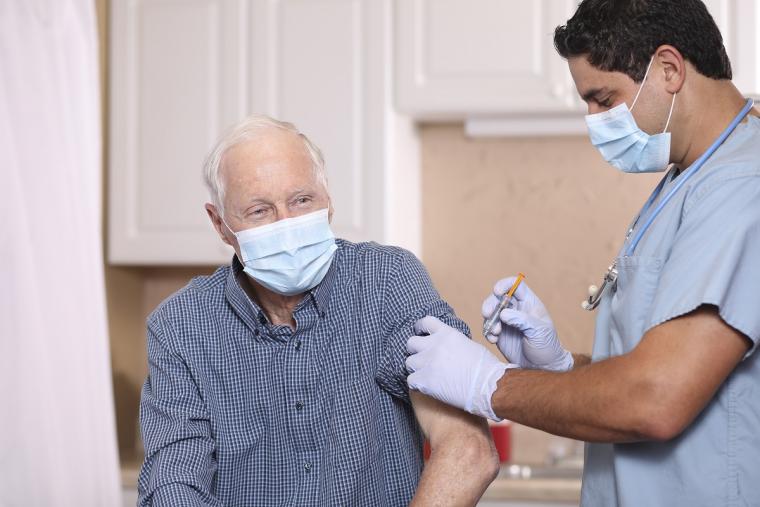- Managing your Practice
-
- Your Benefits
-

Introducing the ultimate Club MD experience
From work to play, and everything in between, we provide you with access to hundreds of deals from recognizable, best-in-class brands, elevating every facet of your life – from practice supports to entertainment, restaurants, electronics, travel, health and wellness, and more. Your Club MD membership ensures that these deals are exclusive to you, eliminating the need to search or negotiate.
Welcome to the ultimate Club MD experience. Your membership, your choices, your journey.
-
- Advocacy & Policy
-
- Collaboration
- News & Events
-

Stay Informed
Stay up to date with important information that impacts the profession and your practice. Doctors of BC provides a range of newsletters that target areas of interest to you.
Subscribe to the President's Letter
Subscribe to Newsletters
-
- About Us
-

COVID-19 and flu season: What you should know
October 14, 2020
Together for Health
With the ongoing pandemic and the flu season soon to be upon us, people are talking about the possible impact of a twindemic, a scenario in which a severe influenza season coincides with a surge of COVID-19 cases. It’s a scenario that could see more British Columbians becoming ill and our health system becoming overwhelmed.
That is one reason why Dr Kathleen Ross, family doctor in Coquitlam and President of Doctors of BC says: “If you have never had a flu shot before, this is the year to do it.”
“The flu vaccine reduces your risk of flu-related illness, not COVID-19,” said Dr Ross. “However, in conjunction with current public health measures of physical distancing, increased hand washing, masking, and staying home when you are sick, increasing the number of people who get their flu vaccine will help to decrease flu-related hospitalizations and preserve valuable healthcare resources needed to treat those ill with COVID-19. Even if you are young and healthy, you should get your flu shot. You’re not only protecting yourself, you’re also protecting people you care about who might be more at risk than you.”

Did you know?
- In anticipation of the greater demand his year, the provincial government has secured more than two million doses of flu vaccine. According to CTV News, the Public Health Agency of Canada has said the territories and provinces have ordered 22% more doses compared to last year.
- It is really important that elderly people and those with underlying health conditions get the flu shot. They are at highest risk of becoming seriously ill with the flu and with COVID-19. The flu can weaken the body's overall strength and increase inflammation, making pre-existing medical conditions worse, and when combined with a COVID-19 infection could exacerbate any existing conditions.
- Some good news for kids - this year there is a nose spray to protect children from ages 2 to 18.
- For the majority of British Columbians, the flu vaccine will be free.
- Wearing a mask when you can’t physically distance, avoiding touching your face, and washing your hands regularly are all critical habits to keep up – but it’s still critical to get vaccinated against influenza. These measures are not entirely foolproof, so getting your flu shot can provide a proven extra layer of protection once the winter season sets in.
- Contrary to what some people think, the flu vaccine will not make you ill. It is safe for everyone, including the elderly, pregnant women and children. That’s because It contains dead influenza viruses that are incapable of causing infection. Another misconception is that the vaccine causes adverse side effects. While some minor side effects can occur, more serious reactions are extremely rare. The bottom line is, the benefits of having a flu shot far outweigh any potential side effects.
How to prepare for vaccination
- First of all, find a place to get your flu shot. You can check with your family doctor – many doctors are working with public health partners and their health authorities to find innovative ways to deliver the vaccine in a way that is safe for everyone. You can also check your local pharmacy or public health supports available through your health authority. The ImmunizeBC Flu Clinic Map is also available.
- Do not go to the clinic or other vaccination location if you have a fever, cough, sore throat or are unwell. If you have made an appointment, call to reschedule.
- Wear a mask to the appointment and if possible, a short-sleeve shirt.
- Let the health care provider know if you have had a previous reaction to the flu vaccine.
- Plan to stay at the clinic for 15 minutes after getting your shot in case of the very rare possibility (less than 1 in a million) of an allergic reaction.
We will end with some good news. In general, Canada looks to Australia to gain insight about what its upcoming flu season might look like. Flu numbers in the Southern Hemisphere have been less severe than in past seasons, with many experts saying that existing COVID-19 precautions and increased flu vaccine numbers have helped curb the number of cases.
As we move into fall and winter here, this is our chance step up to the challenge - to protect not only ourselves but also the most vulnerable in our communities.




